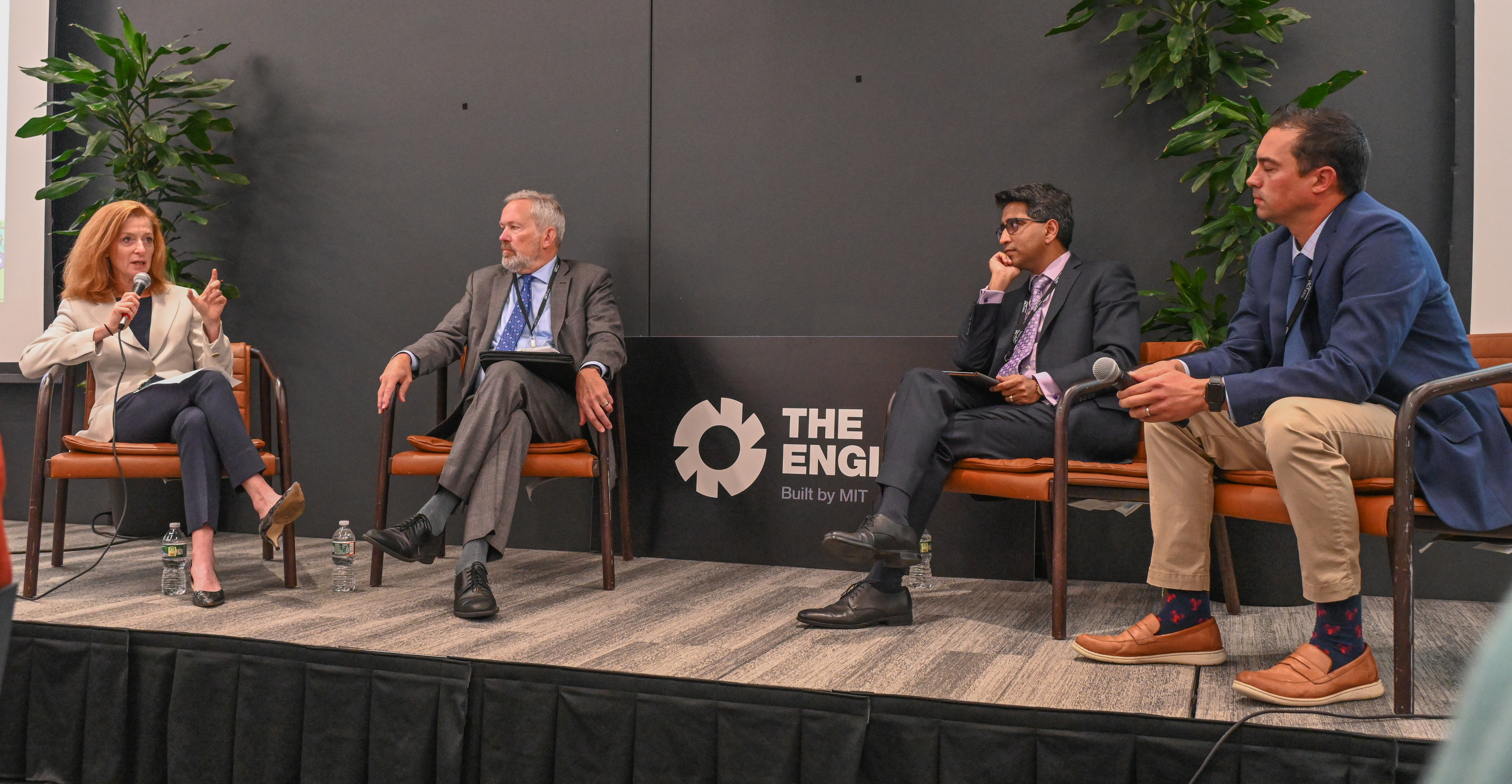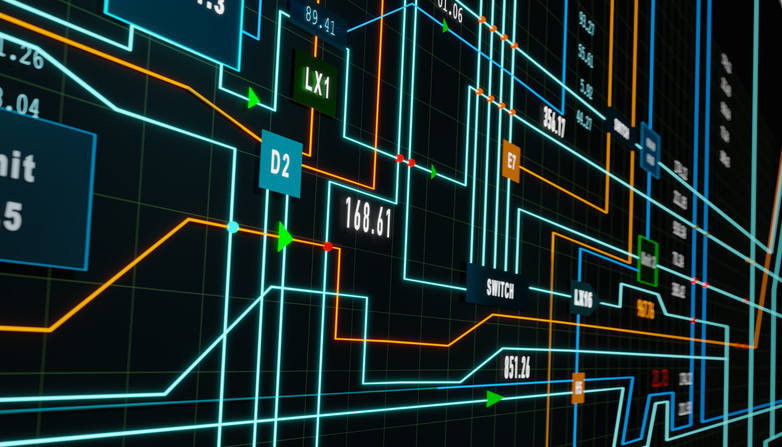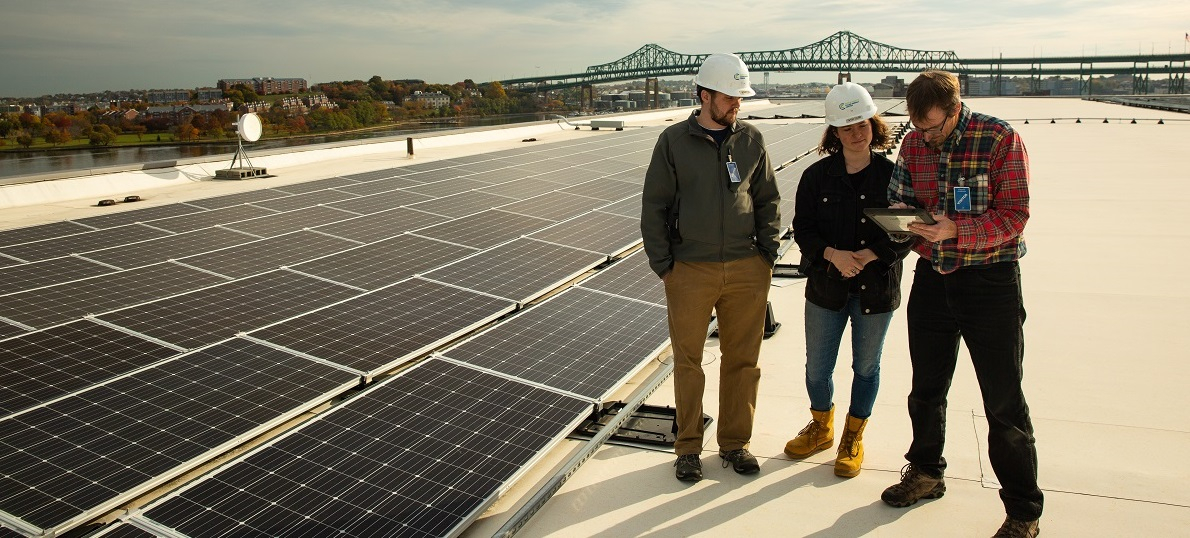"Transitioning to the Future Grid in Massachusetts" Event Series

In 2024, MassCEC, in partnership with the Alliance for Climate Transition (formerly known as NECEC), conducted an event series, Transitioning to the Future Grid in Massachusetts. We brought together over 300 diverse stakeholders from across the grid landscape to collaboratively identify key challenges, solutions and next steps.
In the process of achieving these goals, the series also developed and strengthened relationships among grid stakeholders, upon which the achievement of grid innovation is dependent. A lot of work remains to foster inclusive collaboration; MassCEC is committed to growing our support in this space.
Research and Innovation
MassCEC supports collaborations between Massachusetts grid-owners, operators, startups, and researchers that help the Commonwealth meet the mandates of the Global Warming Solutions Act. Better integrating renewable energy sources and protecting the grid from extreme weather events are examples of the topics addressed.

Developing a Grid Services & Distributed Energy Resources (DERs) Compensation Method

MassCEC seeks to understand how DERs can provide services that help reduce the overall cost of the energy transition.
-
DERs play a critical role in the grid by providing a range of possible services, including capacity relief, infrastructure deferral and avoidance, voltage support, among others.
-
Today, untapped opportunities exist to connect and utilize DERs as a flexible resource to respond to location-specific needs. However, for DERs to provide value to the distribution grid, we must determine the appropriate, effective level of compensation for DERs providing grid services.
Through a grid services study, MassCEC is supporting the creation of a Massachusetts-specific, statewide compensation mechanism for DERs providing services to the distribution grid.
Distributed Energy Resources Dispatch Study
Project Background
The Commonwealth’s path to Net Zero by 2050 requires significant electrification of the transportation and building sectors accompanied by large-scale deployment of Distributed Energy Resources (DERs). As a result, the Electric Distribution Companies (EDCs) must rapidly expand and upgrade the distribution grid to accommodate numerous new loads and distributed sources of electricity generation. MassCEC’s Net Zero Grid Distribution Planning Lab sought to quantify the approximate cost of this expansion and upgrade, while identifying promising opportunities to limit that cost. Building on this collaboration with the EDCs, MassCEC now seeks to understand how existing and future customer-owned DERs on the distribution grid can provide services that help reduce the overall cost of the energy transition.
About DER Dispatch Study
In September 2022, MassCEC released a Request for Proposals (RFP) for its Value of Distributed Energy Resources for Distribution System Grid Services study and selected Baringa Partners LLP to lead the project in December 2022. The motivation for this study was to explore grid services as a tool that can help reduce the overall cost of the energy transition.
The resulting report assesses the potential value of DERs to the distribution grid by creating an integrated set of frameworks to explore the provision of grid services by DERs. This report is a starting place for EDCs, policy makers, and DER stakeholders to understand how to value DERs, a foundational step in developing a statewide solution for expanded utilization of DERs as grid resources.
Net Zero Grid Planning Lab

To accelerate the planning process in Massachusetts while exploring ways to reduce the costs of transitioning to a net zero grid, MassCEC engaged technical consultants and software startups through the NZG Planning Lab. Through first-of-its-kind analysis and innovative software tools, these experts are assessing current distribution system barriers and opportunities, conducting load forecasts based on decarbonization scenarios, and demonstrating novel distribution system planning tools, protocols, and emerging technologies that will further grid decarbonization goals in a cost-effective manner.
